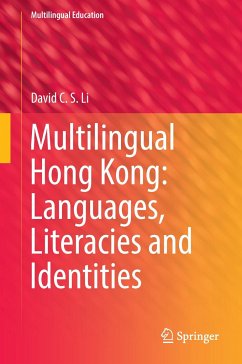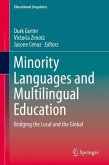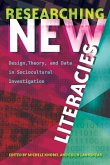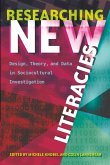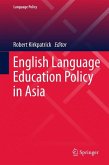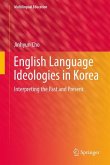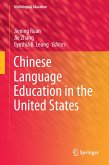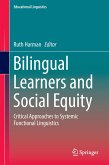This volume gives an up-to-date account of the language situation and social context in multilingual Hong Kong. After an in-depth, interpretive analysis of various language contact phenomena, it shows why it is such a tall order for Hongkongers to live up to the Special Administrative Region government's language policy goalpost, 'biliteracy and trilingualism'. A detailed contrastive analysis between Cantonese and (a) English, (b) Modern Written Chinese, and (c) Putonghua helps explain the nature of the linguistic and acquisitional challenges involved. Economic forces and sociopolitical realities helped shape the 'mother tongue education' or 'dual MoI streaming' policy since September 1998. The book provides a critical review of the significant milestones and key policy documents from the early 1990s, and outlines the concerns of stakeholders at the receiving end. Another MoI debate concerns the feasibility and desirability of teaching Chinese in Putonghua (TCP). Based on a critical review of the TCP literature and recent psycholinguistic and neuroscience research, the language-in-education policy implications are discussed, followed by a few recommendations. Hongkongers of South Asian descent saw their life chances curtailed as a result of the post-1997 changes in the language requirements for gaining access to civil service positions and higher education. Based on a study of 15 South Asian undergraduate students' prior language learning experiences, recommendations are made to help redress that social inequity problem.
"Multilingual Hong Kong: Languages, Literacies and Identities is recommended reading for researchers with an interest in the linguistic Situation of Hong Kong, especially for those whose work is on multilingualism in post-colonial societies." (Bernie Chun Nam Mak, Pragmatics and Society, Vol. 10 (2), July, 2019)
"David Li's book is therefore highly welcome, as it provides the reader with a thorough and up-to-date overview of the medium-of-instruction policies and debates in Hong Kong, while at the same time situating the policies within their historical and sociopolitical contexts. ... this is an invaluable book for policy-makers in Hong Kong and elsewhere, as well as researchers working in the areas of language policy and planning, sociolinguistics and multilingual education." (Jean-Jacques Weber, Journal of Sociolinguistics, Vol. 21 (4), September, 2017)
"Nevertheless, in skillfully combining extensive studies with rich data and rigorous analysis, this is one of the most reader-friendly books I have ever read about multilingual Hong Kong. ... It is a page-turner that dwells upon complete factual grounds and highly clear exposition. I believe that the book is destined to become a required reading for those who share the same interest in multilingual Hong Kong as myself." (Ye Zhu, The Journal of Asia TEFL, Vol. 3, 2017)
"David Li's book is therefore highly welcome, as it provides the reader with a thorough and up-to-date overview of the medium-of-instruction policies and debates in Hong Kong, while at the same time situating the policies within their historical and sociopolitical contexts. ... this is an invaluable book for policy-makers in Hong Kong and elsewhere, as well as researchers working in the areas of language policy and planning, sociolinguistics and multilingual education." (Jean-Jacques Weber, Journal of Sociolinguistics, Vol. 21 (4), September, 2017)
"Nevertheless, in skillfully combining extensive studies with rich data and rigorous analysis, this is one of the most reader-friendly books I have ever read about multilingual Hong Kong. ... It is a page-turner that dwells upon complete factual grounds and highly clear exposition. I believe that the book is destined to become a required reading for those who share the same interest in multilingual Hong Kong as myself." (Ye Zhu, The Journal of Asia TEFL, Vol. 3, 2017)

